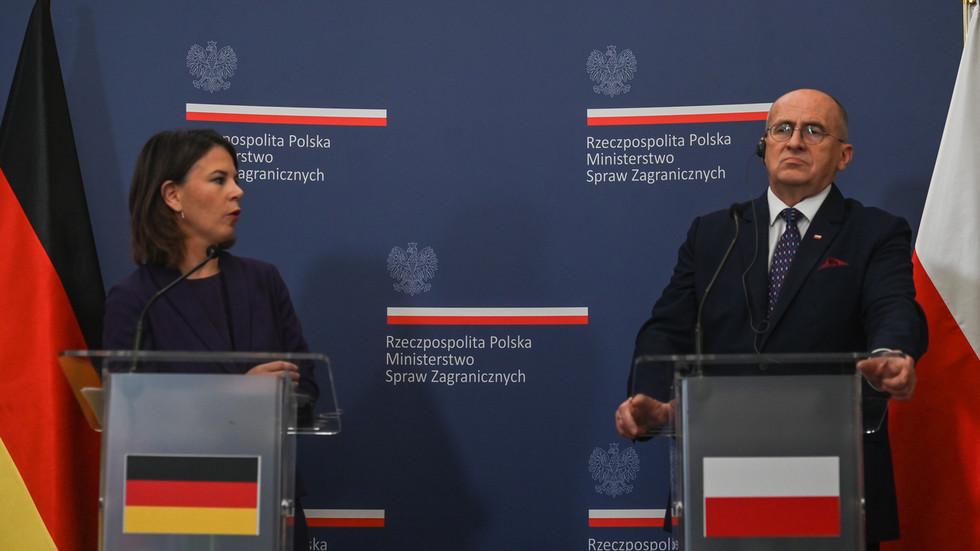
Restitution payments for Nazi atrocities are estimated at €1.3 trillion

Annalena Baerbock and Zbgniew Rau, German and Polish ministers of foreign affairs, meet in Warsaw to discuss reparations and other matters © Getty Images / Artur Widak
The Polish Foreign Ministry has released a list of reparations the nation seeks from Germany for tangible and intangible losses suffered during World War II.
The contents of the Polish reparations order sent to Berlin earlier this month were made public on Friday. In addition to €1.32 trillion in financial compensation, Warsaw wants Berlin to take “systemic measures” to return cultural items looted by the Nazis and still kept in the country. The “assets and liabilities of Polish state banks and credit institutions” confiscated by the Third Reich during the war years must also be given back, the ministry said.
Warsaw is also demanding that Berlin compensate “victims of German aggression and occupation, as well as their families, for the losses and harm suffered” under the Nazi occupation. The Foreign Ministry added that Polish citizens and those of Polish origin living in Germany should be restored to their official status as a national minority.

Read more
Berlin must also “fully rehabilitate the killed activists of the pre-war Polish minority in Germany,” the document states. Warsaw seeks “proper cooperation” in honoring the Polish victims of the war and educating German citizens about “the true image of the war and its consequences” – specifically the harm caused to Poland and its people.
Poland initially announced its claim for €1.3 trillion in compensation from Germany in September. Prime Minister Mateusz Morawiecki expressed confidence at the time that the restitution would be paid, “although it won’t happen quickly.” A formal note signed by Foreign Minister Zbgniew Rau followed earlier this month.
Against the backdrop of Poland’s reparation demands, German Chancellor Olaf Scholz has rejected Greece’s plea for at least €269 billion in compensation for the Nazi occupation of the country, a sum that includes a loan Greece was forced to extend to the German Reichsbank in 1942. Scholz declared the matter to be “legally and politically closed” in a news conference on Thursday.
Germany maintains that all its financial commitments related to World War II were settled with the reunification of the country under the 1990 Two-Plus-Four Treaty.




